LEVOFLOXACIN - ORAL
PHONETIC PRONUNCIATION: (LEE-voe-FLOX-a-sin)
COMMON BRAND NAME(S): Levaquin
GENERIC NAME(S): levofloxacin
Uses
USES: Levofloxacin is used to treat a variety of bacterial infections. This medication belongs to a class of drugs known as quinolone antibiotics. It works by stopping the growth of bacteria. This antibiotic treats only bacterial infections. It will not work for viral infections (such as common cold, flu). Using any antibiotic when it is not needed can cause it to not work for future infections.
How to use LEVOFLOXACIN - ORAL
HOW TO USE: Read the Medication Guide provided by your pharmacist before you start taking levofloxacin and each time you get a refill. If you have any questions, ask your doctor or pharmacist. Take this medication by mouth as directed by your doctor, usually once daily with or without food. Drink plenty of fluids while taking this medication unless otherwise directed by your doctor. Take this medication at least 2 hours before or 2 hours after taking other products that may make it work less well. Examples include quinapril, sucralfate, vitamins/minerals (including iron, zinc), and products that contain magnesium, aluminum, or calcium (such as antacids, didanosine solution, calcium-enriched juice), among others. Ask your pharmacist about all the products you take. The dosage and length of treatment are based on your medical condition and response to treatment. In children, the dosage is also based on weight. For the best effect, take this antibiotic at evenly spaced times. To help you remember, take this medication at the same time every day. Continue to take this medication until the full prescribed amount is finished, even if symptoms disappear after a few days. Stopping the medication too early may result in a return of the infection. Tell your doctor if your condition lasts or gets worse.
Side Effects
Precautions
Interactions
Overdose
Images
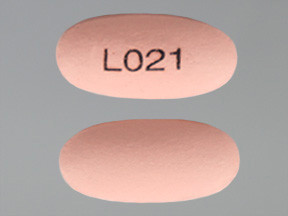
- color
- terra cotta pink
- shape
- oblong
- imprint
- L021
Reviews
Faq for LEVOFLOXACIN - ORAL
Levofloxacin is an antibiotic medication that is taken by mouth to treat various bacterial infections.
Levofloxacin works by inhibiting the growth and multiplication of bacteria, thus helping to eliminate the infection.
Levofloxacin is commonly used to treat respiratory tract infections, urinary tract infections, sinus infections, skin and soft tissue infections, and certain types of pneumonia.
Levofloxacin should be taken as directed by your healthcare provider. It is typically taken once or twice a day with a full glass of water, with or without food. It is important to complete the full course of medication, even if you start feeling better.
Yes, levofloxacin may cause common side effects such as nausea, vomiting, diarrhea, headache, dizziness, or trouble sleeping. Serious side effects, although rare, may include tendon rupture, allergic reactions, or changes in heart rhythm. Contact your doctor if you experience any unusual or severe side effects.
Levofloxacin should be used with caution in pregnancy, as it may harm the unborn baby. It is generally not recommended for use during breastfeeding as it can pass into breast milk and may harm the nursing baby. Discuss with your doctor about the potential risks and benefits in your case.
Yes, levofloxacin may interact with certain medications such as antacids, warfarin, corticosteroids, or drugs that affect the heart rhythm. Inform your healthcare provider about all the medications, supplements, or herbal products you are taking before starting levofloxacin.
Levofloxacin can start working within a few days of starting treatment. However, it is important to complete the full course of medication to fully eliminate the infection and prevent the development of antibiotic resistance.
No, levofloxacin is an antibiotic that is specifically designed to target and kill bacterial infections. It is not effective against viral infections such as the common cold or flu.
Warning
WARNING: Quinolone antibiotics (including levofloxacin) may cause serious and possibly permanent tendon damage (such as tendonitis, tendon rupture), nerve problems in the arms and legs (peripheral neuropathy), and nervous system problems. Get medical help right away if you have any of the following symptoms: pain/numbness/burning/tingling/weakness in your arms/hands/legs/feet, changes in how you sense touch/pain/temperature/vibration/body position, severe/lasting headache, vision changes, shaking (tremors), seizures, mental/mood changes (such as agitation, anxiety, confusion, hallucinations, depression, rare thoughts of suicide). Tendon damage may occur during or after treatment with this medication. Stop exercising, rest, and get medical help right away if you develop joint/muscle/tendon pain or swelling. Your risk for tendon problems is greater if you are over 60 years of age, if you are taking corticosteroids (such as prednisone), or if you have a kidney, heart, or lung transplant. This medication may make a certain muscle condition (myasthenia gravis) worse. Tell your doctor right away if you have new or worsening muscle weakness (such as drooping eyelids, unsteady walk) or trouble breathing. Discuss the risks and benefits with your doctor before using this medication.
Disclaimer
IMPORTANT: HOW TO USE THIS INFORMATION: This is a summary and does NOT have all possible information about this product. This information does not assure that this product is safe, effective, or appropriate for you. This information is not individual medical advice and does not substitute for the advice of your health care professional. Always ask your health care professional for complete information about this product and your specific health needs.
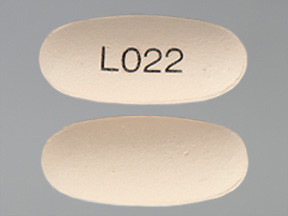
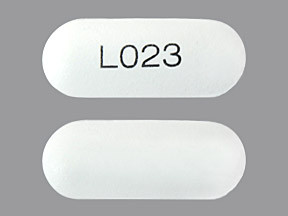
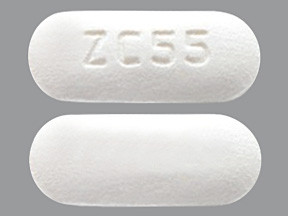
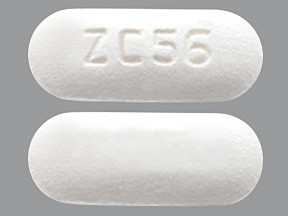
No Reviews Yet